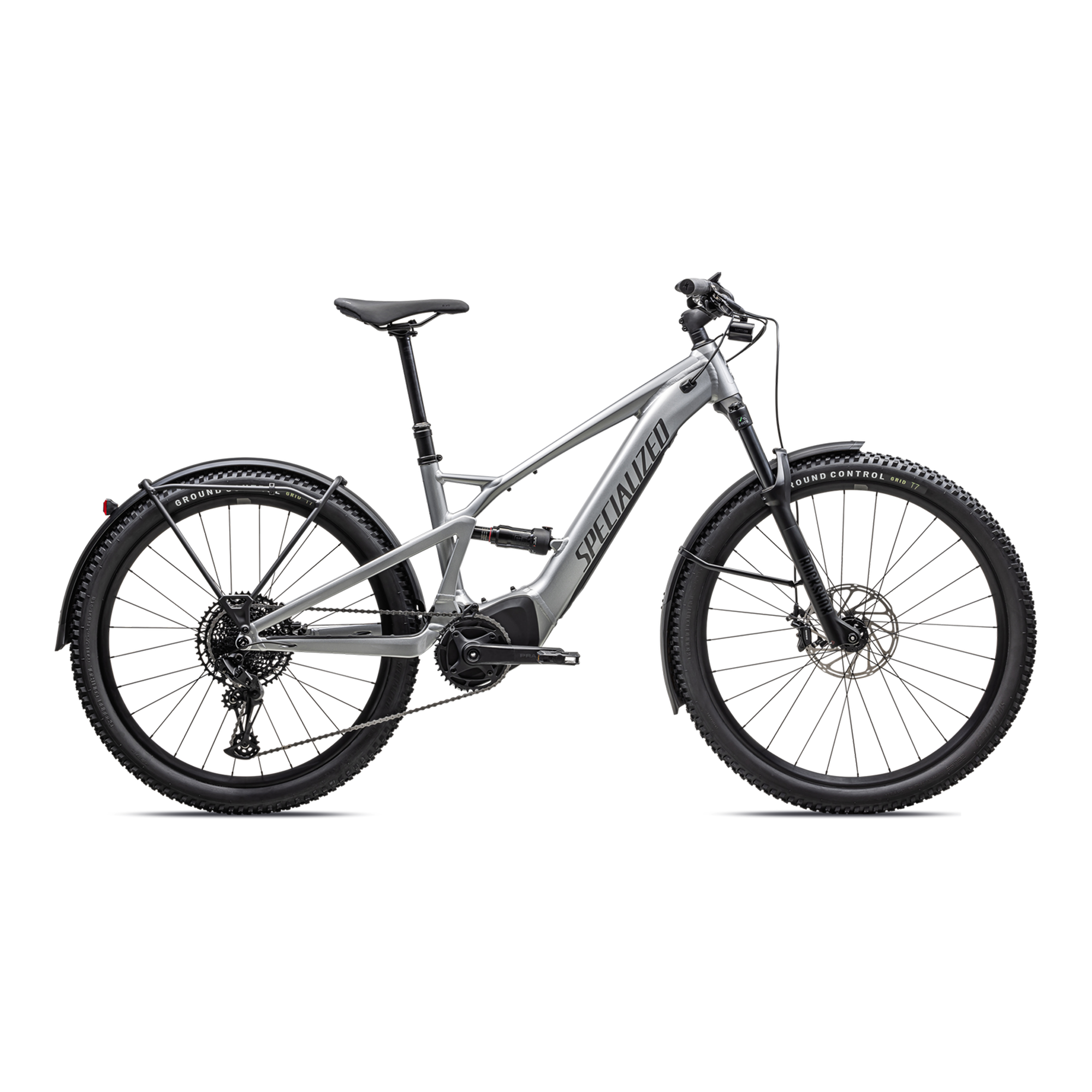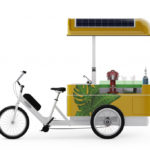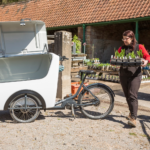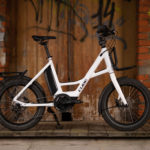Yeah of course that's something I hadn't considered. CheersAll electric bikes will need something fixed after some time. When it comes to the electrical systems, most of the electrical parts are easy and cheap to fix on the cheap bikes, but the more expensive ones have locked electrical systems, so that only a dealer with the right equipment can fix them, so which bike to get depends on your ability to fix it or where the dealer is, who can fix it. In other words, you can buy some fancy expensive brand by mail order, but when it goes wrong, you're stuffed.
E bike or Emtb for commute!
- Thread starter MrG
- Start date
All the bikes you mention will do the job, but it is possible as others have shown to spend quite a bit less.
The Specialized has a spec that would do very well for moderate offroading - four piston brake calipers, 12 speed wide range gears - which a London commute does not need. And mudguards that offroaders would not normally bother with, but very useful on a commuter. You probably do need a rack.
It is the 'proprietary' type of bike that is often warned about as expensive to fix if it goes wrong. True, but how often do they go wrong, and why? Not often, and usually from hard use or excessive exposure to water.
It is also a 'mid-drive', with the motor driving through the chain and gears. Together with the torque sensor as the means of control, this gives a very natural cycling feel when you ride it. But do you need that for a commute? If you want the feeling of bionic legs and lost youth, then yes. If getting from a to b effectively is more important then you can live without it.
The Engwe E28 is expensive for a rear hub motor bike, but the belt drive makes it clean and easy to live with, and if reliable enough, the two speed hub is probably all the gears your commute needs.
The E26 is nothing special, and rather heavy, so I would look at alternatives to that. The Woosh suggestions above perhaps.
One or two final thoughts: 20 miles a day is substantial: quite a workload for both bike and rider. 5,000 miles a year? I'd just do a 'sense check' before committing to an expensive bike, although the likely cost savings against other means of transport probably mean there is not much to worry about even if you don't ride every day.
My 3.5 year old Shimano mid-drive has clocked up 20,000 miles. It might manage the same again, might not. You might end up writing off the cost of the bike over two or three years. Does that level of depreciation look OK?
Many commuters use folding small wheel bikes to keep the flexibility of trains without special bookings. Do you need that possibility?
The Specialized has a spec that would do very well for moderate offroading - four piston brake calipers, 12 speed wide range gears - which a London commute does not need. And mudguards that offroaders would not normally bother with, but very useful on a commuter. You probably do need a rack.
It is the 'proprietary' type of bike that is often warned about as expensive to fix if it goes wrong. True, but how often do they go wrong, and why? Not often, and usually from hard use or excessive exposure to water.
It is also a 'mid-drive', with the motor driving through the chain and gears. Together with the torque sensor as the means of control, this gives a very natural cycling feel when you ride it. But do you need that for a commute? If you want the feeling of bionic legs and lost youth, then yes. If getting from a to b effectively is more important then you can live without it.
The Engwe E28 is expensive for a rear hub motor bike, but the belt drive makes it clean and easy to live with, and if reliable enough, the two speed hub is probably all the gears your commute needs.
The E26 is nothing special, and rather heavy, so I would look at alternatives to that. The Woosh suggestions above perhaps.
One or two final thoughts: 20 miles a day is substantial: quite a workload for both bike and rider. 5,000 miles a year? I'd just do a 'sense check' before committing to an expensive bike, although the likely cost savings against other means of transport probably mean there is not much to worry about even if you don't ride every day.
My 3.5 year old Shimano mid-drive has clocked up 20,000 miles. It might manage the same again, might not. You might end up writing off the cost of the bike over two or three years. Does that level of depreciation look OK?
Many commuters use folding small wheel bikes to keep the flexibility of trains without special bookings. Do you need that possibility?
I think just about all e-bikes will do what you want. I'm not convinced the more expensive e-mountain bikes will be any better for what you want. I find a hub motored bike more relaxing for commuting (I have a mid (crank) drive and that is better for mountain biking)
As others have said, be wary of the battery in second hand bikes, if it has not been looked after it might need replacing which can be very expensive. I wouldn't be scared of Chinese generic technology, lots of countries that have the highest e-bike usage are relying on this technology and it is relatively easy to service / replace components cheaply.
As others have said, be wary of the battery in second hand bikes, if it has not been looked after it might need replacing which can be very expensive. I wouldn't be scared of Chinese generic technology, lots of countries that have the highest e-bike usage are relying on this technology and it is relatively easy to service / replace components cheaply.
I answered your original post yesterday but the reply got trashed along with your post.
Most of this has now been said by others but I'm copying it unedited. ~~~
For commuting there is one overriding requirement, reliability; with a closish second, repairability. Often with more expensive ebikes you are paying for lightness and sophistication. These often go against the reliability and durability. In addition the proprietary nature of bikes such as Specialized means you are very tied into the dealer for supplying and fitting parts; they are likely to be expensive and sometimes slow to find, especially if the bike is more than a few years old.
Generic Chinese bikes tend to have much more generic parts that can be sourced easily, quickly and cheaply. The poor ones are certainly dodgy; but even the slightly better ones will have decent quality parts; in particular properly specified and matching battery and charger. They will be heavier than a second hand 4k bike; but the same argument you used for tyres applies to weight.
One particular feature that higher priced bikes tend to have is crank drive. There are many advantages to these, especially if you have very steep hills or want to try sporty downhill riding. However, they are more complicated then hub drive; even though mostly reliable any repairs are more complicated. So for normal commuting people generally suggest simpler hub drives.
I suggest looking at a decent bike from a good supplier such as https://wooshbikes.co.uk/ or https://wisperbikes.com/
Most of this has now been said by others but I'm copying it unedited. ~~~
For commuting there is one overriding requirement, reliability; with a closish second, repairability. Often with more expensive ebikes you are paying for lightness and sophistication. These often go against the reliability and durability. In addition the proprietary nature of bikes such as Specialized means you are very tied into the dealer for supplying and fitting parts; they are likely to be expensive and sometimes slow to find, especially if the bike is more than a few years old.
Generic Chinese bikes tend to have much more generic parts that can be sourced easily, quickly and cheaply. The poor ones are certainly dodgy; but even the slightly better ones will have decent quality parts; in particular properly specified and matching battery and charger. They will be heavier than a second hand 4k bike; but the same argument you used for tyres applies to weight.
One particular feature that higher priced bikes tend to have is crank drive. There are many advantages to these, especially if you have very steep hills or want to try sporty downhill riding. However, they are more complicated then hub drive; even though mostly reliable any repairs are more complicated. So for normal commuting people generally suggest simpler hub drives.
I suggest looking at a decent bike from a good supplier such as https://wooshbikes.co.uk/ or https://wisperbikes.com/
Tbh I can't see a point for riding a mtb on road as a commuter bike.
For all weather one will want max protection from road detritus and wet weather with full mudguards , possibly a decent rack and panniers and maybe slicker tyres or less bulky tyres for less drag.
A Woosh type Faro bike or similar design 700c with upto 40c tyres will get the job done nicely and tbh if one knows how to set the bike up correctly and ride it correctly then suspension isn 't needed either.
For all weather one will want max protection from road detritus and wet weather with full mudguards , possibly a decent rack and panniers and maybe slicker tyres or less bulky tyres for less drag.
A Woosh type Faro bike or similar design 700c with upto 40c tyres will get the job done nicely and tbh if one knows how to set the bike up correctly and ride it correctly then suspension isn 't needed either.
Last edited:
Cheers for reposting. I'm sold on avoiding the bigger brands for cost reasons. Some great info here thanks.I answered your original post yesterday but the reply got trashed along with your post.
Most of this has now been said by others but I'm copying it unedited. ~~~
I suggest looking at a decent bike from a good supplier such as https://wooshbikes.co.uk/ or https://wisperbikes.com/
If I may add something else into the conversation, the above bike has an expensive SRAM PG-1210 Eagle, 12-speed, 11-50t setup which will be expensive to maintain for a commuter during the winter. Ideally you need a chainguard for winter riding but with a hub motor you can get away without one as the chains/sprockets are cheaper and last many times longer, and are less important as they dont transfer motor power.Thanks man good plan. Here's the bike I'm looking at.

Turbo Tero X 4.0
The Turbo Tero X means one thing: you're going to need a bigger map. With ride anywhere range, this full-suspension electric bike is our go-anywhere, ov...www.specialized.com
The Engwe looks fun but I'm concerned about the battery and future repair costs. There's some horror stories especially on Reddit of the company showing slightly shady after sales support.All the bikes you mention will do the job, but it is possible as others have shown to spend quite a bit less.
The Engwe E28 is expensive for a rear hub motor bike, but the belt drive makes it clean and easy to live with, and if reliable enough, the two speed hub is probably all the gears your commute needs.
One or two final thoughts: 20 miles a day is substantial: quite a workload for both bike and rider. 5,000 miles a year? I'd just do a 'sense check' before committing to an expensive bike, although the likely cost savings against other means of transport probably mean there is not much to worry about even if you don't ride every day.
Many commuters use folding small wheel bikes to keep the flexibility of trains without special bookings. Do you need that possibility?
Wow, 5,000 miles a year sounds huge for someone like me. I'm relatively fit but have zero bike experience. I'm looking for a bike to commute with very little effort on my my part. I'm unsure on throttles also. They sound like fun but of course the police are a concern.
Initially, I was only looking at folding ebikes but storage at work is secure so Its not a necessity now. For storing at home I'll probably get a bike rack.I live in a shared house so the battery safety is a major concern. I've come across battery safety bags but need to do more research on there integrity.
I've spent the morning looking at Whoosh and Wisper bikes and am interested in Wisper but again they fall into the Pricier category which many of you have said I don't need. The Whoosh are cheaper but I'm not sold for a number of reasons and I don't want to offend anyone as clearly there's an affiliation here for these brands.
I'd repeat again, keep it legal. Scrutiny will only increase over time. You can have a throttle, but for legality either you need to go the SVA route, or it can only work at meaningful speeds if you are pedalling. As the law stands, this only means ghost pedalling, not putting in effort.The Engwe looks fun but I'm concerned about the battery and future repair costs. There's some horror stories especially on Reddit of the company showing slightly shady after sales support.
Wow, 5,000 miles a year sounds huge for someone like me. I'm relatively fit but have zero bike experience. I'm looking for a bike to commute with very little effort on my my part. I'm unsure on throttles also. They sound like fun but of course the police are a concern.
Initially, I was only looking at folding ebikes but storage at work is secure so Its not a necessity now. For storing at home I'll probably get a bike rack.I live in a shared house so the battery safety is a major concern. I've come across battery safety bags but need to do more research on there integrity.
Off the shelf throttle? Talk to Wisper.
Battery safety: treat your battery well, don't expose it to excessive rain, store sheltered, not outdoors in the weather.
Look at the charger current rating. Higher rate means shorter charging times which means less temptation to leave unattended. Ideally 4A, but not many cheaper bikes have that. 3A will do, 2A takes ages to charge.
This is one area where the big mid-motor brands perhaps instill more confidence than the bottom end cheapest bikes.
On the 5,000 miles a year, that's just maths! It's the 20 miles a day that is the challenge, starting from nothing! You might find you need to change bits for comfort: swept back handlebars are easier on the wrists, a good suspension seatpost like Suntour NCX will be as good as rear suspension on a commuter bike.
And a mid-drive, driving through the chain, will want a couple a chains and a cassette every 5,000 miles or so. Buy in sales, it's not prohibitively costly, but bear it in mind.
Last edited:
Drop me a line MrG we have some very good Ex demos. David@wisperbikes.comI've spent the morning looking at Whoosh and Wisper bikes and am interested in Wisper but again they fall into the Pricier category which many of you have said I don't need. The Whoosh are cheaper but I'm not sold for a number of reasons and I don't want to offend anyone as clearly there's an affiliation here for these brands.
All the best, David
I've just been reminded by matthewslack's post of a big omission in mine.For commuting there is one overriding requirement, reliability; with a closish second, repairability.
Comfort comes above everything for a 10 mile each way commute.
K
kevsbike
Guest
Fair enough, but my Wisper was gone in the space of 4 hours in what I thought was a relatively safe locationFair enough. Is that because your worried about theft. It would be in a secure area at all times.I'm not talking about turning it into a crazy speed machine. 22-28mph max speed. I
Geeze, thats depressing. Did you have insurance?Fair enough, but my Wisper was gone in the space of 4 hours in what I thought was a relatively safe locationI use two D-locks now, but I'd only owned it 16 months so it does make me question what is a sensible amount to spend myself, when it comes to replacing it.
K
kevsbike
Guest
No, it was secondhand and I was unable to find out how old it was to insure it but it only had about 250 miles on the clock. I don't think it had been used but at least the thief will have the expense of replacing the battery, which is another thing to consider, as others have said.
2a charger rate isn't an issue unless one is touring where during the day one may be time constrained.
2a still isn't an issue unless one fully depletes a battery, when time constraint isn't an issue then typically a full charge can be had within 5 - 8 hrs (battery capacity dependant).
With 6ah 44v battery I can manage 30+ miles and can fully charge within a couple of hours, often 1hr or less so if not depleting fully.
Charging current depends on how fast the process is required vs battery AH .
I9f f at work for severla hours or back at home not needing the bike until the next day then 2a for most will more then ok and better for the battery by having a lower charge C rate per cell.
2a still isn't an issue unless one fully depletes a battery, when time constraint isn't an issue then typically a full charge can be had within 5 - 8 hrs (battery capacity dependant).
With 6ah 44v battery I can manage 30+ miles and can fully charge within a couple of hours, often 1hr or less so if not depleting fully.
Charging current depends on how fast the process is required vs battery AH .
I9f f at work for severla hours or back at home not needing the bike until the next day then 2a for most will more then ok and better for the battery by having a lower charge C rate per cell.
if you buy a bike with say a bosch motor when the warranty ends so does the parts as they wont sell any motor parts inc bearings.
Bosch doesn't make bearings, bearing companies make bearings, so replacements are easy to get.
As you know yourself having had your bosch motor serviced by performance bearings.
Remind us again how long you've been running that bosch powered Ebike again ? from 2016 was it
In truth, £350-£500plus a 500w bosch batt is 650 quid where as if you did a diy bike with a bafang motor the batt will be half the price.
Still expensive, but then high quality stuff always is.
Last edited:
I think he's having you on Soundwave.
Related Articles
-
 Wisper 806T folding bike wins Which? ‘Best Buy’
Wisper 806T folding bike wins Which? ‘Best Buy’- Started by: Pedelecs
-
 Smartebike crowdfunds street food e-cargo concept
Smartebike crowdfunds street food e-cargo concept- Started by: Pedelecs
-
 Amazon launch their first UK e-cargo micromobility hub
Amazon launch their first UK e-cargo micromobility hub- Started by: Pedelecs
-
 National Trust & Raleigh announce e-bike trial
National Trust & Raleigh announce e-bike trial- Started by: Pedelecs
-
 Cube launch Compact Hybrid
Cube launch Compact Hybrid- Started by: Pedelecs


